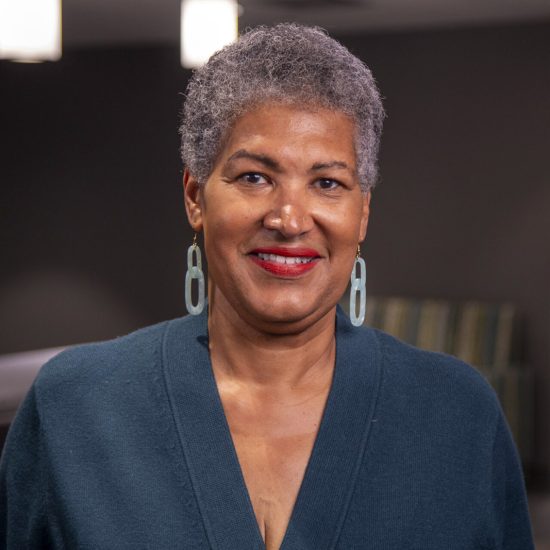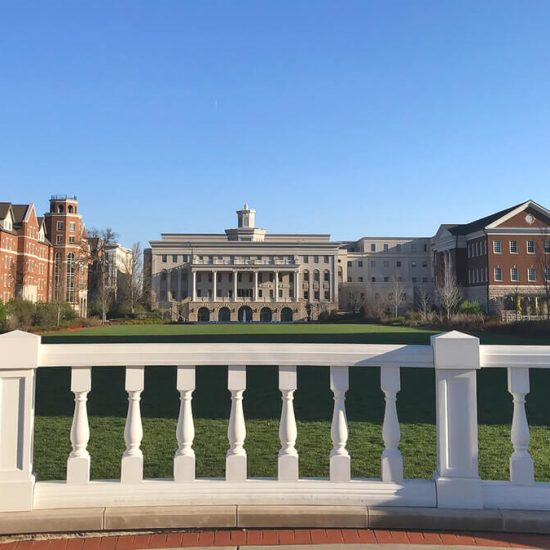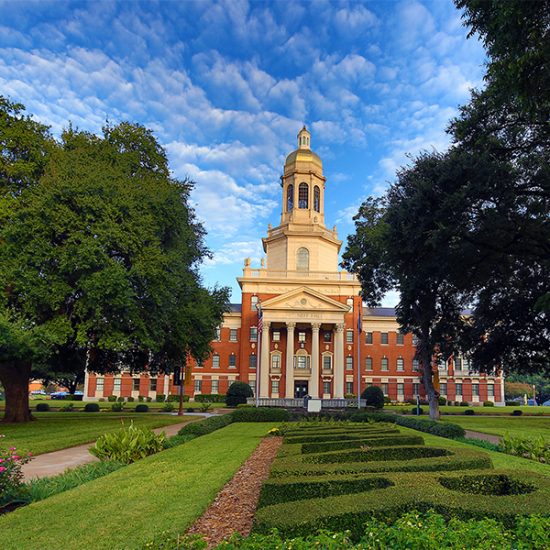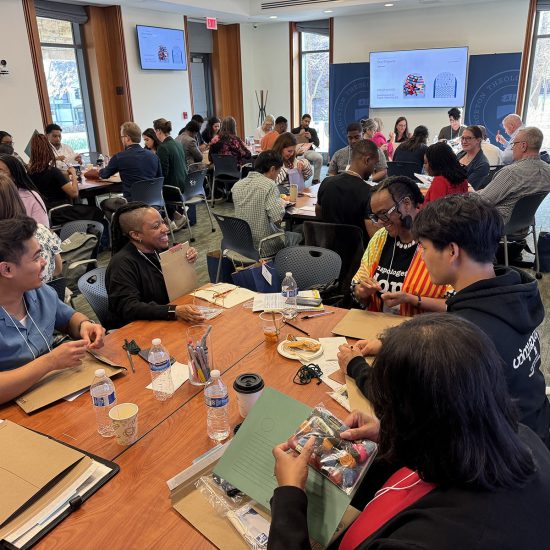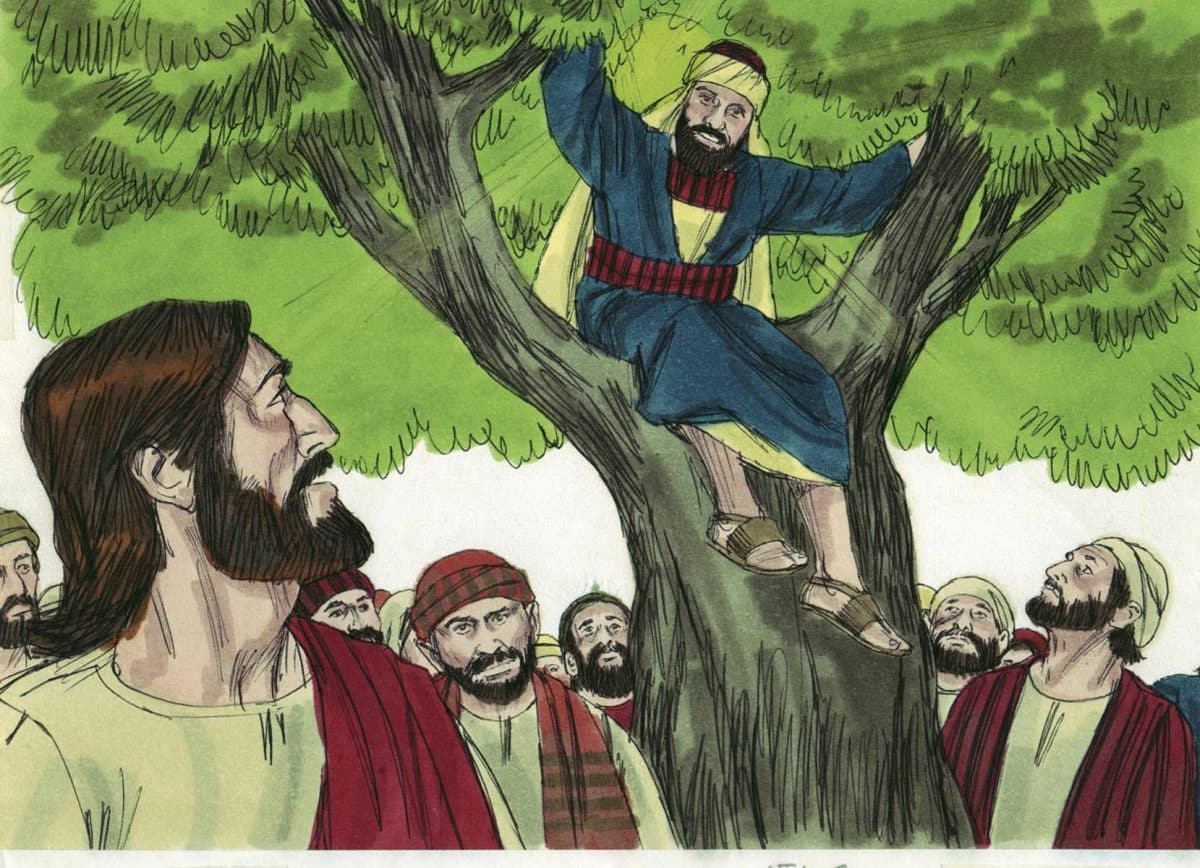
In Luke 19, a wee little man named Zacchaeus recognizes his past mistakes, repents, and then starts to make amends with those he hurt. My alma mater, Southwest Baptist University in Bolivar, Missouri, now faces its own Zacchaeus moment.

Last week, SBU’s trustees dropped their proposed new governing documents amid a six-month court challenge and accreditation issues. The new articles of agreement would have given the Missouri Baptist Convention more legal control over the school. But some alumni and others who care about the school have been warning for more than a year that the move could risk the school’s accreditation and thus its very existence.
SBU’s trustees ignored these concerns and pushed ahead with the new governing documents. Now, however, amid an investigation by SBU’s accrediting body the Higher Learning Commission, the trustees acknowledged their proposed articles would not be “in alignment with the Higher Learning Commission policies.”
Dropping the problematic articles was a good and necessary first step. But repentance doesn’t stop with just acknowledging the error. Like Zacchaeus, SBU’s leadership must now work to make amends. Here are six suggestions for where to start.
1. SBU’s trustees need to issue a public apology to SBU faculty, students, alumni, and friends. This move for transparency and accountability is necessary after trustees adopted governing documents that were clearly not in the best interest of the school — the very thing their fiduciary obligation as trustees demands of them. How could they have done this despite the warning signs? What legal, academic, and other trusted voices of warning did they ignore and why? This must become a learning moment to create better governance and avoid similar debacles in the future. The self-evaluation should not be hidden behind closed doors.
Part of this repentance might include trustee resignations. The vice chair resigned last week as part of the steps for fixing the accrediting and other messes created by the trustees during the nearly three-year controversy at the school. But others who led SBU to this point should consider if their presence on the board prevents faculty and others from having confidence in the board. For instance, SBU Board Chair Eddie Bumpers insisted in March that the accrediting body will “agree” with the actions of SBU’s board and he dismissed those concerned about accreditation as just trying “to stir controversy and division.” Instead of taking the accreditation issues seriously, he attacked those who sought to protect the school. The trustees wasted a lot of money and staff time pushing for the governing documents they now admit were problematic. Can the board actually regain trust with the SBU community when Bumpers is still chair?
2. SBU and the MBC should add Donald Jump back to SBU’s board of trustees in October. As an alum, donor, and former trustee, Jump stood up to protect the school he loves. He was the first person to file a petition with the Circuit Court of Polk County to intervene as an effort to block the new governing articles. He warned in his filing, which the judge later sided with, that the new articles would “result in irreparable harm to the University” as it “put SBU’s continued accreditation at risk.” He was right.
Had Jump not filed his petition, the new articles would’ve gone into effect back in February. In that scenario, SBU’s trustees would not have been able to quickly drop the articles amid the accreditation investigation but instead would have had to start a months-long process. Simply put, Jump’s petition saved SBU at the last minute. It should be remembered that he’s not on the board right now because the MBC advanced a slate that removed his nomination for a new term. As a sign of repentance and gratitude, SBU and MBC leaders should put Jump forward as a trustee for the slate at the MBC annual meeting in October.
3. SBU needs to compensate faculty who were driven out by the push for the new governing documents. In February, SBU trustees took the unusual move of denying tenure (and thus terminating) two professors and denying promotion to another. They took these actions after ignoring faculty and administration evaluations, circumventing procedures outlined in the school’s faculty handbook, and utilizing standards in the new governing documents even though those standards were not in effect. Now the trustees not only dropped the new governing documents but also announced they will “reorganize” the trustee committee that made the tenure and promotion decisions.
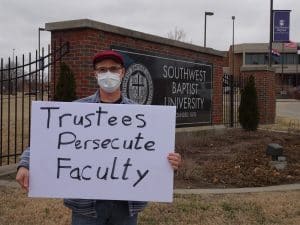
Part of a Feb. 26 rally at Southwest Baptist University to support professors targeted for dismissal by SBU trustees. (Brian Kaylor/Word&Way)
This action at a meeting to consider the preliminary report from the accrediting body clearly suggests an acknowledgement that faculty were wronged. But just fixing the system moving forward is not good enough. The three professors are no longer at SBU and are not teaching elsewhere. As a sign of repentance, SBU’s trustees should publicly apologize to the three individuals and provide a meaningful financial payment to them for the harm to their reputations, careers, and mental health. (Other professors should likely also receive apologies and compensation, including religion professors who left the school because they could not in good conscience sign the new creedal documents demanded of them even though the new articles including that provision were not in effect.)
4. SBU and the MBC need to apologize to former SBU President Eric Turner. As the MBC demanded SBU pass the now-pulled governing documents and forced loyal trustees onto SBU’s board, Turner criticized the MBC’s efforts. Amid efforts by some trustees to fire him, Turner resigned last October. Afterward, MBC Executive Director John Yeats explained why Turner left. Pointing out the MBC’s demands for the new governing documents granting the MBC greater legal control and changing the creedal expectations on faculty and staff, Yeats wrote in a letter to SBU faculty and staff: “The key differences we had with Dr. Turner centered around governance and theological integrity.” Yeats then claimed that the “misguided accusations related to accreditation … will be closed as unfounded.”
Simply put, Turner was right and Yeats was wrong. The accrediting problems arising from the new governing documents Yeats demanded led SBU’s trustees last week to drop the changes. Like the professors forced out, Turner saw his career and reputation harmed by trustees and Yeats. This wrongful treatment of the previous president shouldn’t be swept under the rug as SBU celebrates a new president starting next week. As a sign of repentance, SBU’s trustees and Yeats should publicly apologize.
5. SBU needs to update its faculty handbook and institutional processes to protect academic freedom. Throughout the push for changes to SBU’s governing documents, one issue emerged over and over: SBU does not have sufficient protections to ensure the academic freedom necessary for a liberal arts school. From the (often-inaccurate) attacks on religion professors to the trustees grilling of professors seeking tenure or promotion to the narrowing of creedal demands on faculty, the school is struggling with supporting education rather than indoctrination. As the American Association of University Professors said in June, SBU is not a school “at which adherence to the academic freedom provisions … is to be expected.” That must change.
6. SBU and the MBC should stop attacking journalists and truth tellers. Throughout the controversy, no one has covered the SBU situation with more detail than Word&Way. My accurate reporting — some of it now confirmed again as the trustees dropped the new governing documents due to accrediting concerns — has resulted in Yeats calling me “a disgruntled blogger,” an SBU trustee claiming I “don’t even read the Bible,” SBU ending its invites for covering meetings, and SBU’s attorney attacking my reporting in a legal filing. Although an apology would be nice, I am not asking for one for myself. But I do feel this 125-year-old ministry cofounded by one of the first Southwest Baptist graduates deserves it, as do the staff and trustees who were attacked for my accurate reporting.
I am more interested in creating a healthier environment going forward. After all, there are signs that the lessons of the governing documents fiasco haven’t yet been learned. The MBC’s publication has virtually ignored the Polk County case until SBU dropped its petition for its new governing articles. Then the MBC’s publication decided to write about the case on Monday in an effort to spin the MBC as the victim. The headline claimed “MBC sued by SBU’s opponents,” which mischaracterized a moot filing in the case that sought to include the MBC in the discovery of evidence. But the more concerning problem is the framing of those opposed to the failed governing documents as “SBU’s opponents” and “SBU critics.”
Who are these “critics”? An SBU professor and an SBU student filed the motion, though the MBC piece never actually mentions that. An SBU alum (Donald Jump) also filed a petition, and another SBU alum (Russell Jackson) served as Jump’s attorney and filed the initial HLC complaint as an attempt to stop the passage of the governing documents before SBU’s trustees took that fateful step last year. And another SBU alum (myself) reported all of this. Each of these individuals fought to protect the school’s accreditation, but now get labeled “opponents.”
If SBU trustees and MBC leaders had spent more time considering what I reported instead of going on the attack, they could have avoided the mess they now try to clean up. Criticizing the press might score some points with your base, but it means you risk falling prey to dangerous groupthink. Moving forward, the MBC, SBU, and all Christian institutions should commit to telling the truth and listening to those who do.
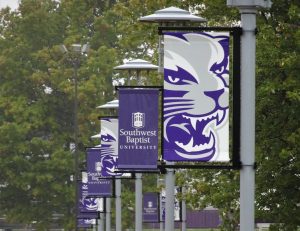
(Brian Kaylor/Word&Way)
These are some first steps. More work is needed. But if SBU and MBC leaders desire the best for Southwest Baptist, then we’ll soon see tangible progress on these fronts. After all, just admitting you are wrong is not good enough. As Zacchaeus showed, true repentance leads to efforts to make amends. And then Jesus responded to Zacchaeus: “Today salvation has come to this house.” May that also be said for the bearcats.
Brian Kaylor is president & editor-in-chief of Word&Way. Follow him on Twitter: @BrianKaylor.

